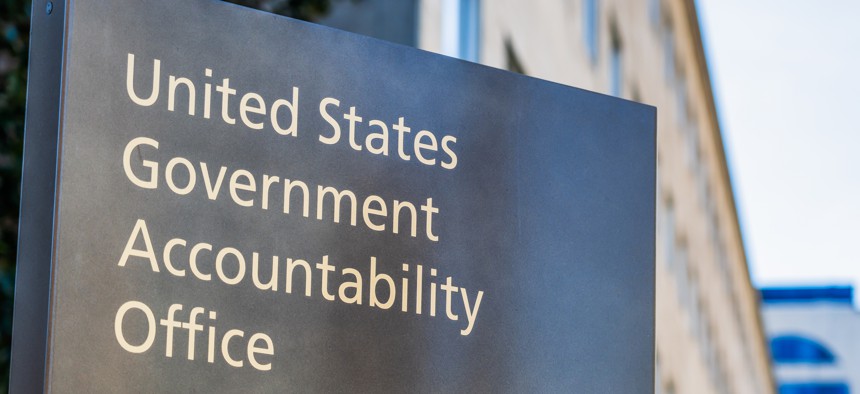GAO pushes back on making losers pay for failed bid protests

Gettyimages.com/ georgeclerk
The watchdog agency cites a lack of data and potential harm to competition in rejecting a congressional proposal.
The Government Accountability Office is pushing back against efforts by Congress to make unsuccessful bid protesters pay both government and contractor costs.
In a letter to Congress released Monday, tGAO is warning that such fee-shifting could reduce competition and harm the federal procurement system.
The watchdog agency wrote that letter in response to parts of the 2025 National Defense Authorization Act that ask GAO's leader, also comptroller general of the U.S., to look at fee-shifting and other ideas. The 2025 NDAA also asks GAO on how it might implement them.
The 2025 NDAA required GAO to study and propose how fee-shifting might work, but did not actually implement such a system.
GAO was blunt in its opposition to charging costs to losing bid protesters.
"We do not endorse creating a fee shifting process for bid protests because existing statutory authorities and bid protest procedures are sufficient to efficiently resolve and limit the adverse impacts of protests filed without a substantial legal or factual basis," GAO General Counsel Edda Emmanuelli Perez wrote in the letter to Congress.
Perez cites several reasons, including a lack of data on which to base reimbursement.
"Because DOD currently does not track costs related to bid protests, we are unable to provide benchmarks showing the average costs to DOD of a bid protest filed at GAO," the letter stated.
Even if data were available, GAO argued in its accompanying report that benchmark approaches would be inappropriate because protest costs are driven by case-specific factors like complexity and number of parties. GAO does not see contract dollar values as driving protests.
There also is possible financial harm to small businesses, which filed more than 60% of all bid protests between the fiscal years 2020 and 2024.
Financial penalties for unsuccessful protests could have a "chilling effect on the participation of firms in the protest process and federal procurement as a whole,” GAO wrote.
Such reduced participation "would have a deleterious impact not only on the transparency and accountability of the procurement system but could potentially result in less competition for the government's requirements," GAO stated.
The government could also see increased costs if contractors start building protest-related financial risks into their pricing.
GAO also points out that the pressure to curb protests comes at a time when the number of challenges dropping. Protests have declined by 32% over the past decade, while Defense Department protests have decreased by 48%.
When GAO reached out to DOD for their input, the department said it was opposed to fee-shifting.
GAO says it does not know specifically why protests have declined. The report identifies several changes including enhanced debriefings at DOD, increases in GAO’s task order jurisdictional threshold, and filing fees for its electronic docket.
The agency said it supports other parts of the 2025 NDAA that touch on bid protests, including enhancements to pleading standards to make it clear that protesters must file allegations that are both credible and support by evidence.
The changes would “reduce ambiguity and further bolster GAO’s ability to expeditiously resolve protest allegations that are either not credible or unsupported by adequate evidence.”
GAO's letter and report went to several committees in the House and Senate including Armed Services, Homeland Security and Government Affairs, Appropriations, and Oversight and Government Reform.
The ball is now in Congress' court to respond to GAO’s opposition.


